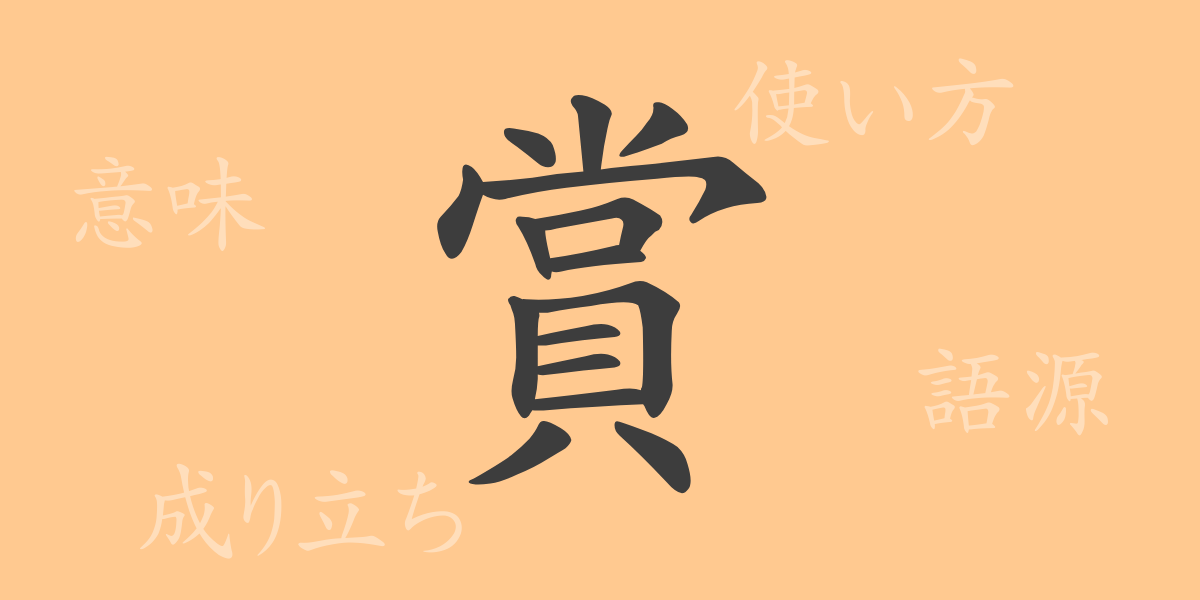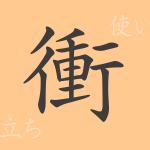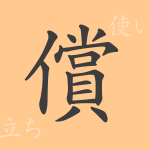In the realm of Japanese writing, kanji are celebrated for their expressive depth, each character steeped in its own unique history and meaning. The commonly used kanji “賞(ショウ)” often appears in contexts related to awards and commendation, but what history and culture lie behind it? This article explores the kanji “賞” in depth, from its origins to its meanings, usage, and the phrases and idioms it appears in.
Origins of 賞(ショウ)
The kanji “賞” traces back to ancient China. Originally, it included the ‘示(しめすぶ)’ radical, relating to rituals offered to deities. ‘示’ symbolizes divine instructions, while ‘将’, part of the original form, depicts holding something in hand — suggesting offerings held for the gods. Over time, the gesture of granting awards came to be represented by “賞”, extending to bestowing honors upon people as well.
Meaning and Usage of 賞(ショウ)
“賞” conveys meanings such as “to praise,” “to honor,” and “to reward.” It is typically used to grant accolades for good deeds or achievements. In legal terms, it appears in phrases like “賞金(prize money)” and “賞罰(rewards and punishments),” referring to rewards for good actions or penalties as rewards. In literature and art, phrases like “賞を取る(to win an award)” and “賞を授与する(to confer an award)” demonstrate its evaluative use.
Readings, Stroke Count, and Radical of 賞(ショウ)
The kanji “賞” has the following features:
- Readings: The on’yomi (音読み) is “ショウ”; there are no common kun’yomi (訓読み).
- Stroke Count: “賞” consists of 15 strokes.
- Radical: Its radical is ‘貝(かいへん)’ related to wealth or goods.
Phrases and Idioms Using 賞(ショウ) and Their Meanings
The kanji “賞” appears in various idioms and phrases, enhancing its semantic range:
- 賞賛(しょうさん): To highly praise someone’s actions or achievements.
- 賞味(しょうみ): To enjoy the taste of food; also refers to the ‘best before’ date on food products.
- 賞与(しょうよ): Special compensation or bonus given for labor.
- 賞状(しょうじょう): Certificates awarded to individuals for excellence or achievements.
- 賞罰(しょうばつ): The act of giving rewards for good deeds and punishments for bad ones.
These phrases and idioms are frequently used in everyday life and business contexts.
Conclusion on 賞(ショウ)
The kanji “賞” symbolizes the act of recognizing and valuing human actions, playing a crucial role across ages in celebrating human effort and success. Through this exploration, we’ve gained insights into the rich history and applications of “賞,” underscoring the beauty of Japanese language and the profound meanings embedded in each character.

























